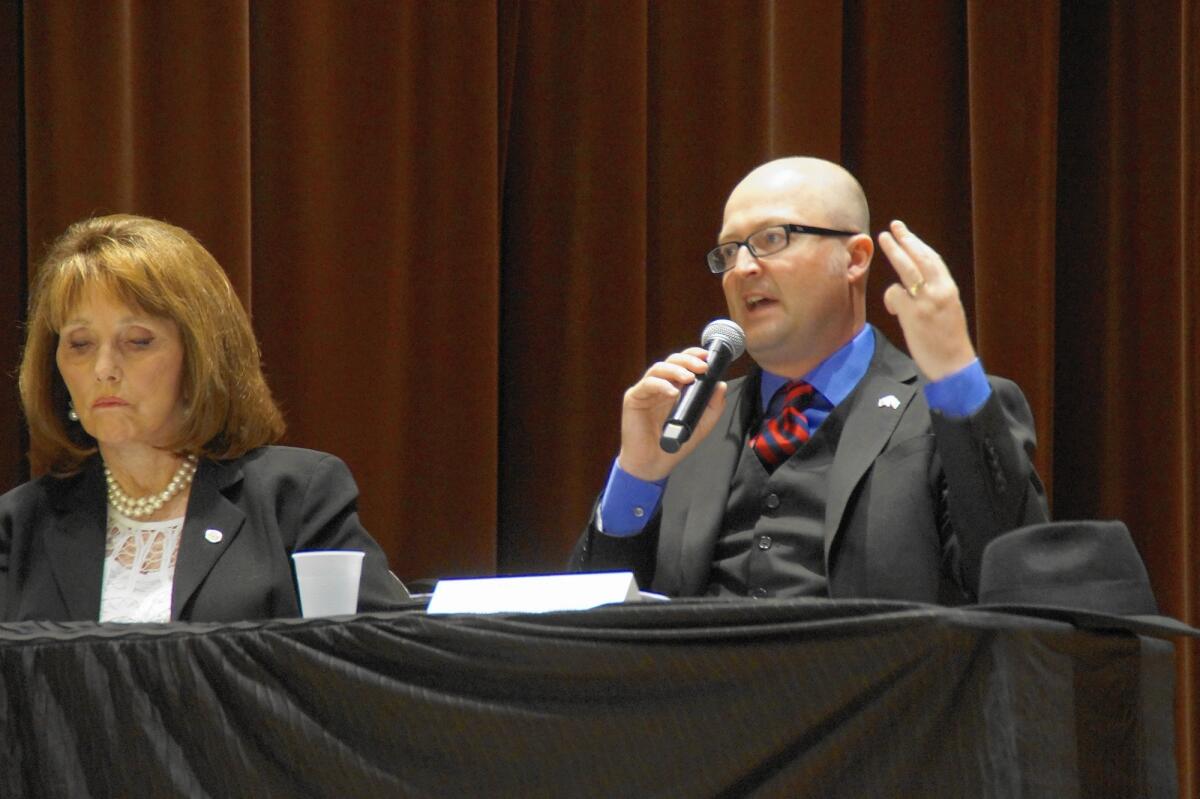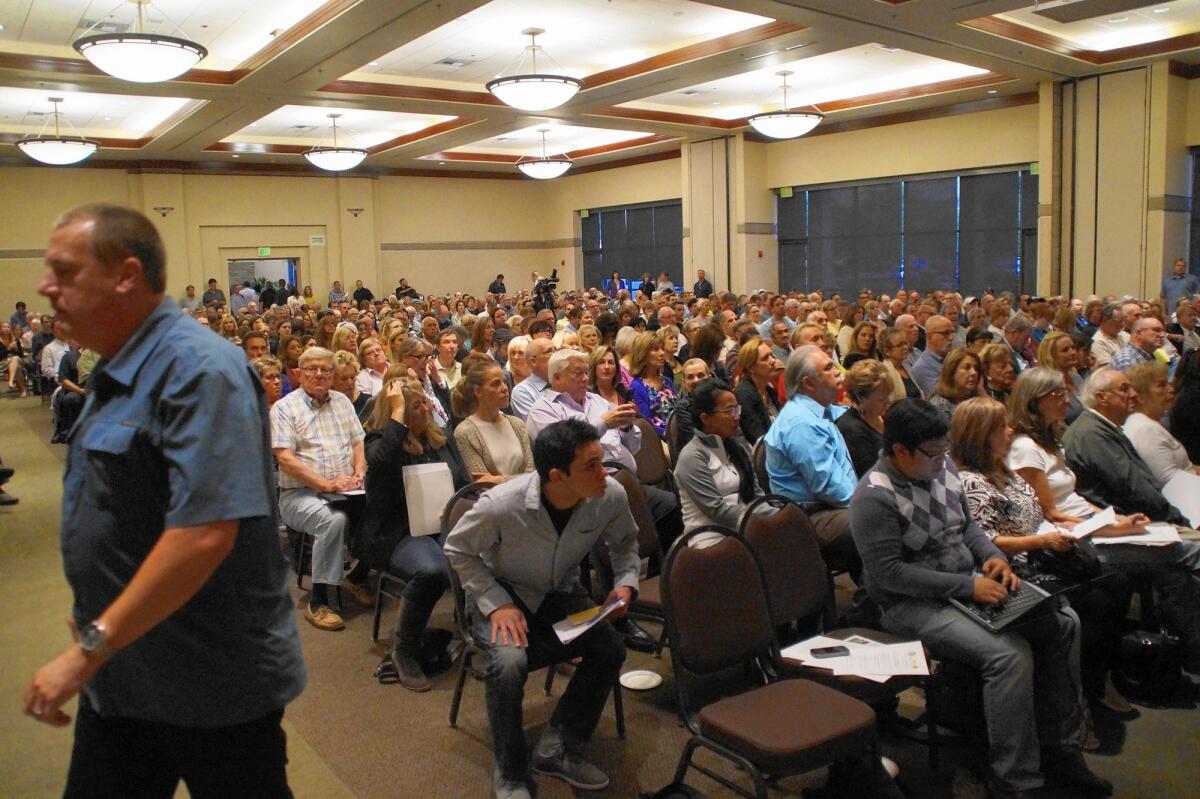Efforts to regulate sober-living homes continue, state legislators say

- Share via
It’s been an uphill battle in Sacramento to regulate the sober-living industry due to political opposition and antidiscrimination laws, Orange County legislators said Thursday during a regional forum in Laguna Hills.
Still, the politicians said, they keep trying to regulate facilities that house people recovering from drug addiction and alcoholism in otherwise residential neighborhoods. Costa Mesa and Newport Beach have both taken operators to court, asserting that rehabs harm neighborhood quality of life.
Over 600 people packed the Laguna Hills Community Center to hear Assemblymen Matthew Harper (R-Huntington Beach) and Bill Brough (R-Dana Point) and state Sen. Pat Bates (R-Laguna Niguel) speak to the problems and potential solutions.
Harper discussed Assembly Bill 2255, introduced by Assemblywoman Melissa Melendez (R-Lake Elsinore) and co-authored by him. Harper’s district includes Costa Mesa and Newport Beach.
The bill seeks to define “drug- and alcohol-free” residences and require that they contain live-in managers, operators or owners.
It also would require the clients to participate in “legitimate programs of recovery from substance use disorder, including, but not limited to, Alcoholics Anonymous or Narcotics Anonymous programs,” according to the bill, which is in committee.

Harper said he normally favors smaller government but believes sober-living regulations would be appropriate.
Bates said group homes are becoming more prevalent in Orange County.
“It’s a very, very complex issue,” she said. “I never imagined that it would be such, but it certainly is.”
Sacramento legislators have introduced bills on the topic since the 1990s, Bates said, including some during the most recent session.
She noted that one of them, AB 2772, was defeated at the committee level. Authored by Bates, it would have required addicts to receive treatment at state-licensed facilities that show compliance with local laws.
Another bill, AB 2403, introduced by Assemblyman Richard Bloom (D-Santa Monica), would allow state authorities to deny permits for treatment facilities within 300 feet of others. The bill passed the Assembly’s Health Committee and is headed to Appropriations.
“I’m pretty hopeful on this bill,” said Brough, one of its co-authors.
Parking disputes, secondhand smoke and noise have been connected to Newport Beach and Costa Mesa sober-living homes. Both cities crafted regulations but saw them challenged in court.
Costa Mesa has an estimated 172 sober-living facilities, according to Tarquin Preziosi, a deputy city attorney who spoke Thursday.
City officials estimated that nearly 30% of all state-licensed drug and alcohol treatment facilities in Orange County are in Costa Mesa.
Thursday’s meeting was sponsored by Orange County, the Assn. of California Cities and the Orange County Assn. of Realtors.
